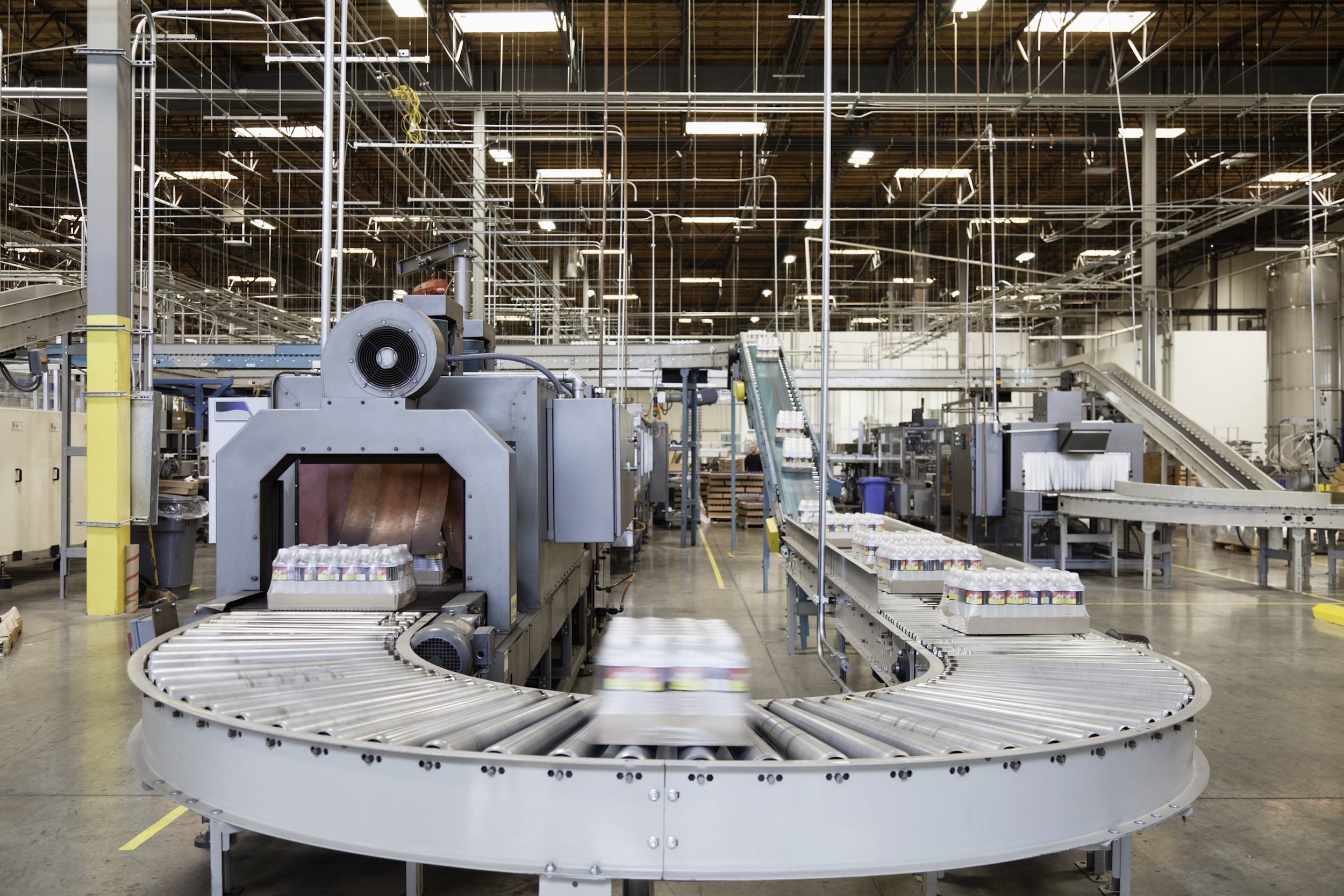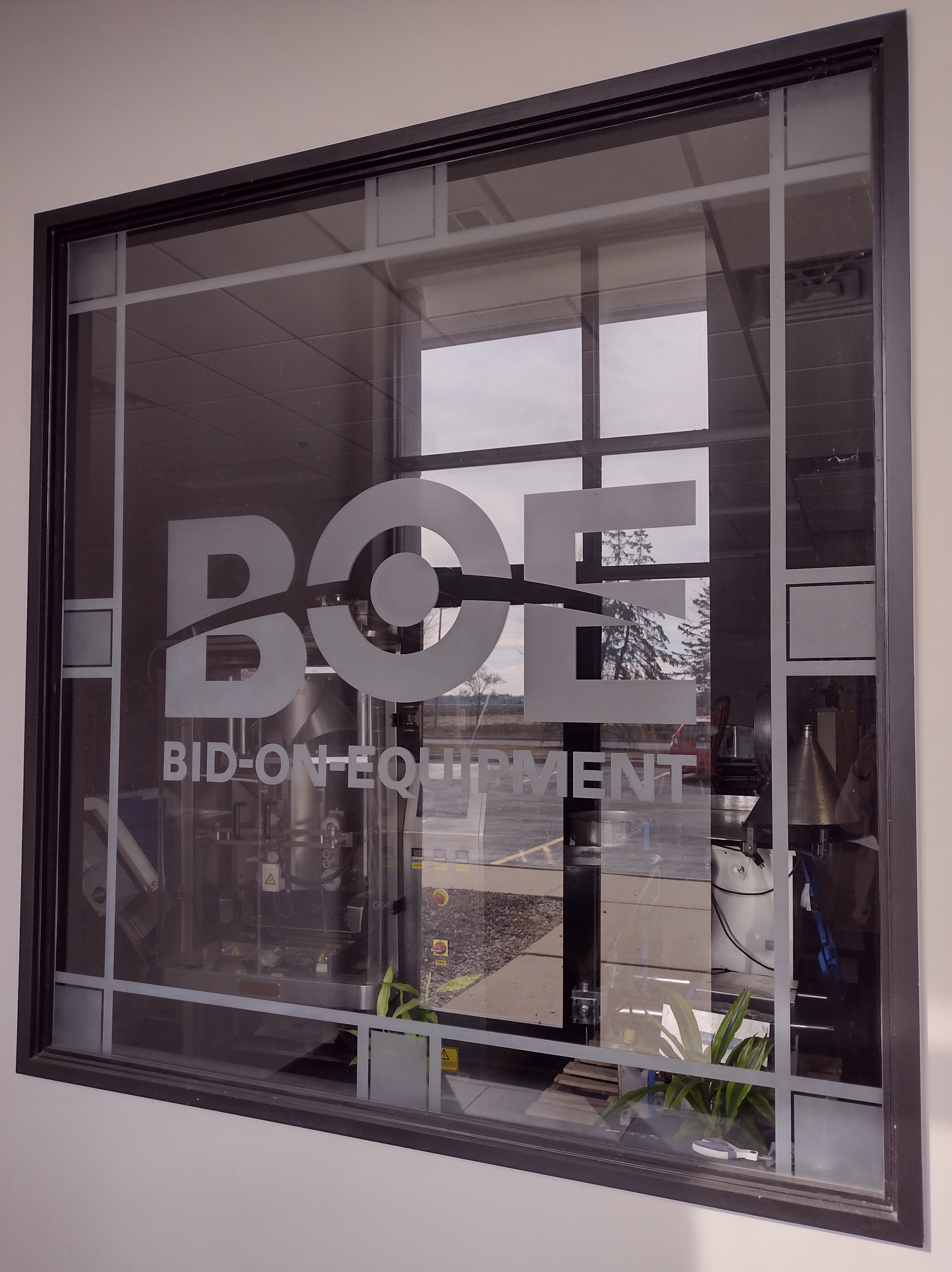Investing in machinery for your business is a big decision. Outside of adhering to a budget and necessary specifications, it can be hard to figure out the best models and manufacturers that will fit your business needs. As a small business, we understand that this is a big investment. So, where do you start?
Our resale site helps companies buy and sell equipment including equipment that is made by American manufacturers. In a survey of nearly 150 Americans who work with machinery, 73% shared they prefer American-made equipment, but only 57% work with it. So, we are doing the research for you. Using our latest purchase data we determined the most commonly purchased American-made equipment and compiled 11 reasons you should consider buying machinery that is made in America.
11 Reasons to Buy American-Made Equipment

While people may be drawn to American-made equipment as a more purposeful patriotic act, there are reasons outside of that to buy machinery made by U.S. manufacturers. It’s clear that this equipment is not always the cheapest option, but costs may outweigh the benefits when considering some of the key reasons below.
1. Brand Reliability
Buying equipment for your business is not cheap and with that comes risks. It’s often a good move to focus on the brand and not necessarily the seller when purchasing equipment. If the brand has a good reputation you know that you’ll be getting a quality piece of machinery.
2. Faster Delivery
Buying machinery that is made by an American manufacturer means you’ll more than likely have a shorter lead time since it has a shorter shipping distance to go before arriving at your business. Of course, buying used equipment can shorten that lead time even further.
3. Ease of Maintenance and Support
When purchasing new or used equipment, you’ll need to prepare for maintenance costs. If a machine has a global presence it should be easy to find skilled help regardless of where it was manufactured. However, if you buy a piece of equipment that is not as common or well-known you may need help from technicians with certain training or certifications.
4. Streamlined Repairs
Alongside the ease of maintenance, if your equipment needs repairs there can be fewer hurdles to jump through if it’s American-made. Not only will it help you avoid paying tariffs for replacement parts, but it will also help avoid any potential supply chain issues and delays in getting your machinery back up and running.
5. Confirmed Compliance
Getting a piece of equipment that was made in the U.S. automatically provides some additional expectations of quality assurance. The U.S. has strict quality safety standards and regulations in comparison to some other countries.
6. Quality Assurance
Getting a piece of equipment that was made in the U.S. automatically provides some additional expectations of quality assurance. The U.S. has strict quality safety standards and regulations in comparison to some other countries.
7. Environmentally Friendly
At the end of the day, buying machinery locally is a lot more environmentally friendly than having it shipped from across the world. Cutting down on those transportation costs will save money and reduce your company’s carbon footprint. To go even greener you can buy used equipment.
8. Local Job Support
By buying machinery that is American-made you know that you’re automatically supporting the work of people who live in the nation, maybe even someone who lives in your community. By supporting and sustaining these jobs you’re in turn contributing to the local economy.
9. Investing in Local Economy
As mentioned above, the decision to get American-made equipment is cyclical meaning you’re putting your money straight back into the local economy. That support then goes toward helping maintain jobs, communities, and businesses.
10. Ethical Decision
Purchasing American-made equipment may have little to do with costs or brands, but everything to do with ethical decisions. Some companies may choose to purchase American-made equipment to ensure they’re supporting fair labor practices and buying machinery that they know is made without exploiting any workers.
11. Positive Public Relations
From our research, we know that while Americans may not always prioritize buying products that are made in the USA they do care about purchasing American-made products. In our survey, we found Americans want to support small businesses and like to shop locally. Promoting the fact that you operate on American-made equipment can only help your public relations, not hurt it!
Most Popular American-Made Machinery
Just over half (51%) of the equipment we sold through Bid-in-Equipment in 2023 was originally built in the U.S. The most common American-made resale equipment that people are purchasing are:
- Pumps
- Fillers
- Mixers
- Case Packaging Equipment
- Tanks
Of the American-made pumps purchased, the two most common brands were Waukesha and Nash. Nash is a longtime American brand that has been around for more than a century, and Waukesha is a company that started in Wisconsin in 1987. Our customers mainly purchased positive displacement pumps or vacuum pumps.
As for American-made fillers, the most popular purchases are liquid fillers followed by powder and paste fillers. The most common U.S.-based brands purchased through Bid-on-Equipment in 2023 were ACASI and All-Fill. All-Fill was founded in Pennsylvania in 1969. Meanwhile, ACASI initially was building its equipment in South America. However, in 2010 the company began building machinery in Miami to speed up the production timeline.
While the type of American-made mixers purchased varied between powder tumble blenders, vertical liquid paste mixers, and horizontal liquid and paste mixers, people were drawn to the same brand: Patterson-Kelley. The Pennsylvania-based manufacturing company has been around since the 1800s.
Supporting Small Businesses in the United States

Supporting small businesses in the U.S. is an important cause to us here at Bid-on-Equipment because we are one too. Bid-on-Equipment was started in 2001 by Larry Lebedun. After working in a variety of industries including the telebusiness, construction, and machinery business, Larry opened Bid-on-Equipment in Algonquin, Illinois. The mission was simple according to him
“It’s about helping people more than anything whether it’s internal or external,” shared Lebedun.
Larry grew up in the Northwest Suburbs of Chicago watching his father and uncle run their own small business – a local pharmacy. He says his father could talk to anyone and that inspired him as he launched his own company.
“I was able to take a lot of my father’s customer service skills and bring it to Bid-on-Equipment,” explains Lebedun. He designed a virtual experience for people looking to buy or sell used equipment and has made it a mission to hire staff with personalities and drive similar to his dad.
The world of equipment sales is often similar to that of used car sales: it doesn’t have the best reputation. It’s Larry’s mission to change that by offering a space where people can see exactly how much equipment is being sold and bought for, pulling back the curtain with a desire to be an open and honest venue. For Larry, it’s more than equipment sales. It’s about helping other businesses, especially ma and pa shops by steering them in the right direction.
“It’s fun to help people build their line and make sure it’s up and running,” shared Lebedun. “We don’t only find them machines. I have contacts all over the place who can help them set it up too.”
Bid-on-Equipment has sold equipment to startups to small businesses and even to Fortune 500 companies. But Larry takes pride in working with small businesses.
“Small businesses are probably the most important thing to help people be independent,” shared Larry. “You’re motivated to do things because you have a sense of pride.”
Methodology
In January 2024, we surveyed 133 Americans about the machinery they work with. Their ages ranged from 18 to 74 with an average age of 41. 30% were women and 70% were men. Jobs included everything from agriculture, construction, manufacturing, transportation, warehouse workers, and more.
For media inquiries, please contact media@digitalthirdcoast.net.
Fair Use:
When using this data and research, please attribute by linking to this study and citing Bid-on-Equipment.com.
